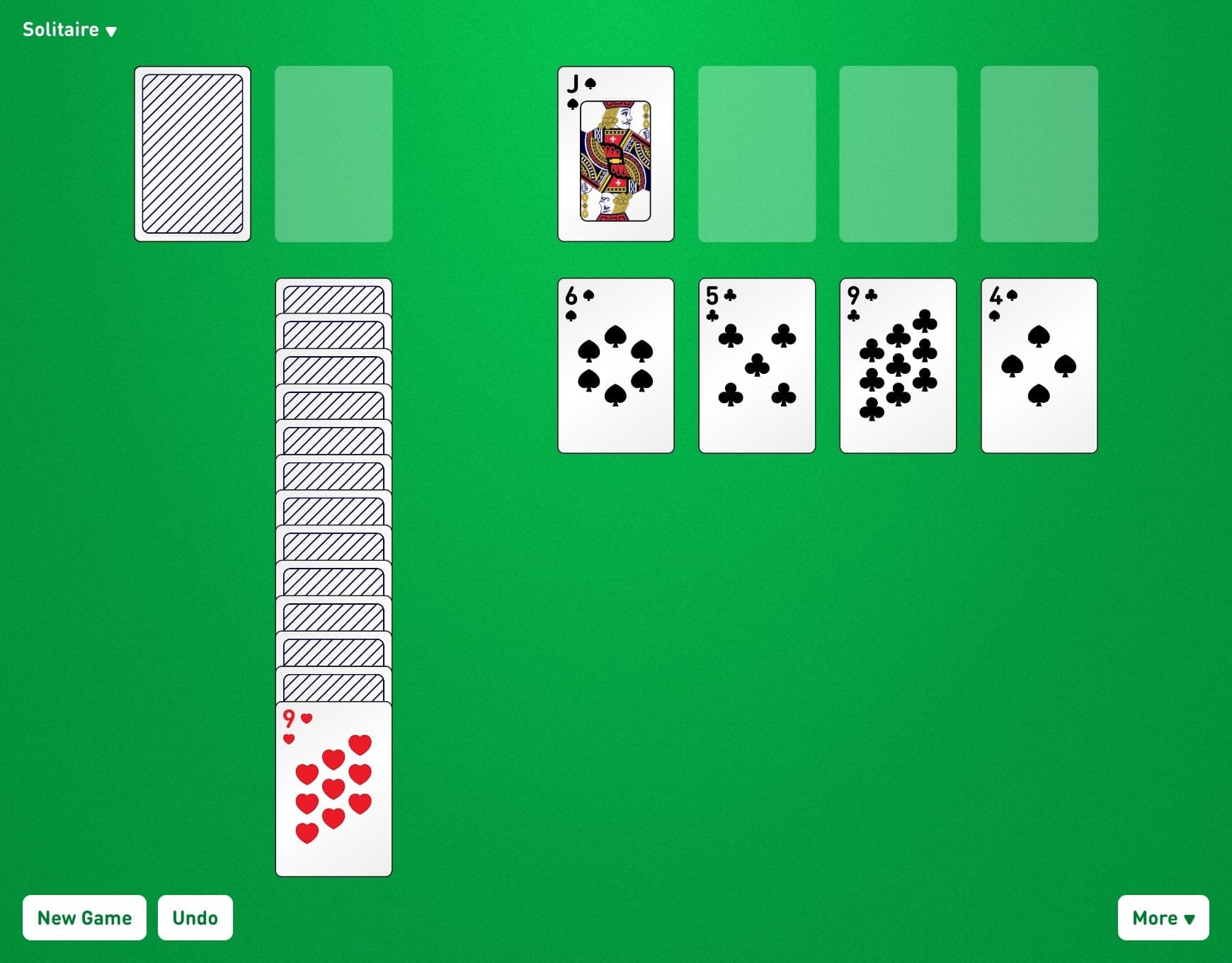Play Canfield Solitaire Online for Free (No Signup Required)
Canfield is a fun Solitaire variation and is free to play online. A feature-rich full-screen card game with daily challenges, winnable deals, hints, and undo's.

According to legend, Richard Canfield, the owner of a magnificent casino in Saratoga Springs, New York, invented Canfield in the 1890s. Players would purchase a deck for $50 and receive $5 for each card played to the foundation.
This claim has been called into doubt because, while the game is tough to win, it isn't so difficult that a skilled player couldn't have bankrupted Mr. Canfield. Some claim that the game played at Canfield's casino was the now-famous Klondike.
In any case, you should consider yourself a winner if you can remove more than 10 cards.
In the United Kingdom, this game is known as Demon. The game is medium in difficulty and has a 35 percent chance of winning. It is played with a single deck, and your odds of victory are primarily determined by your talent.
Similar games include Double Canfield, Triple Canfield, Quadruple Canfield, Superior Canfield, Variegated Canfield, Chameleon, Storehouse, Rainbow, American Toad, Demon, Whistler, Candike, and Inverted Canfield.
If you enjoy Canfield, try Solitaire, a classic solitaire card game.
We are constantly modifying our website in response to customer input. Please contact us if you have any comments or questions.
Enjoy the game!
How to play Canfield Solitaire
Layout:
4 foundation piles: Construct in suit from the rank of the first card given to the first pile, wrapping from King to Ace as needed, until each pile has 13 cards.
4 tableau piles: Alternate color build down. If groups of cards are in sequence, move them down by alternate color. If feasible, spaces are supplied from the reserve, otherwise by any card. At the start of the game, each pile is dealt one card.
Stock: Click to flip over 1 or 3 cards at a time. Redeals are unlimited.
Waste: Top card is always accessible for play on the tableau or foundations.
Reserve: The top card is always ready for use on the tableau or the foundations. 13 cards are dealt here at the start of the game.
Foundation:
There are four foundation piles.
A foundation pile will be given a card at random. This is the starting card. Begin the remainder of the piles with cards of the same rank.
A card may be added to a foundation pile if it is one higher than the pile's previous top card and is of the same suit. As a result, the only card that might be played on a 6 of clubs is a 7 of clubs.
Cards cannot be taken from the foundation after they have been placed.
Reserve:
There is one reserve deck, which originally contains thirteen cards. The top card in the pile is dealt face-up, while the remaining cards are dealt face-down. There are no cards that may be moved into the reserve. The reserve's top card might be played to the tableau or the foundation.
Tableau:
Splayed downward, four tableau piles of one card each. Every card is dealt face-up.
A card may be added to a tableau pile if it is one lower than the pile's previous top card and is of the opposing color. As a result, the cards that might be played on the 5 of hearts are 4 of spades or 4 of clubs.
Cards on the tableau that are not covered by another card are free to be played onto the foundation or any other tableau pile.
Empty tableau spots are instantly filled with a card from the reserve. If the reserve is empty, any card can occupy any vacant place in the tableau.
If the cards are alternately red and black, groups of cards in succession from high to low can be shifted from one tableau column to another.
Stock and waste:
There is one garbage pile and the remaining cards comprise the stock.
When you click on the stock, three cards from the stock are dealt to the garbage. The stock may be passed through an unlimited number of times. If there aren't enough cards left in the deck at the end of a pass, only the remaining cards are dealt. Before the following transaction, the trash will be converted into new stock.
The top card of the trash can be played to the tableau or foundation.